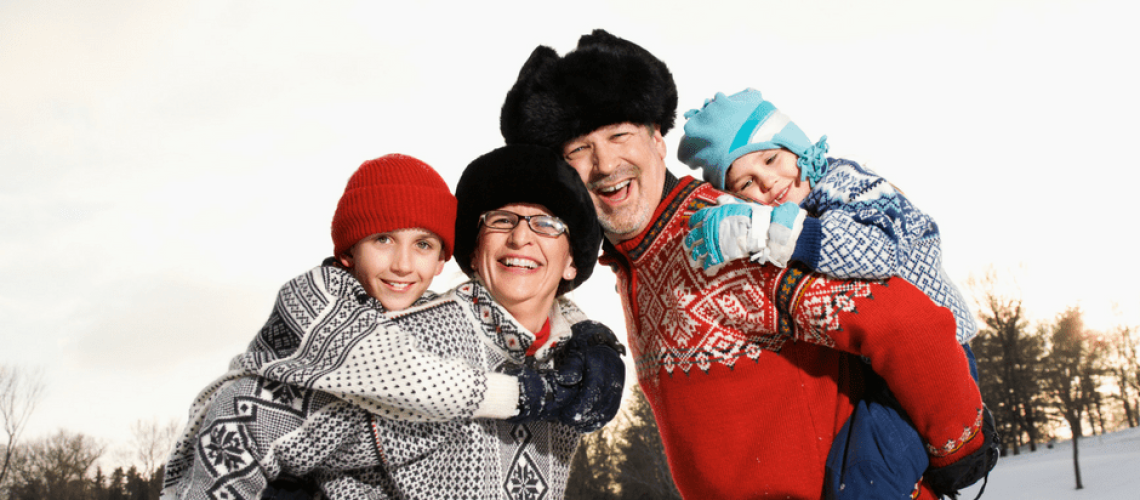Older adults tend to feel the cold more than younger folks, and the cold may have a greater negative effect on seniors. Know how to keep warm in cold weather, and what you should not do when out in the cold.
Keep Warm Inside
It’s important to stay warm, even while inside! You may be tempted to lower your thermostat to try to save money. However, this can be a big risk. It is possible to get hypothermia even while indoors if your home or room is cold enough.
A few things you can do to stay warm inside are:
- Maintain heat in the home. Seniors are more susceptible to cold temperatures and may need the home warmer than younger adults. Set your thermostat to 68 degrees or higher.
- Dress warmly. You may even want to wear long underwear during the day and while sleeping. Thick socks and slippers will keep your feet warm, and don’t hesitate to wear a hat or gloves if your head or hands feel chilled. It’s more important to stay warm in cold temperatures, even while inside.
If you have difficulties affording your home heating bill, you may be able to find help from county or government resources. One resource is the National Energy Assistance Referral service. You could also ask your energy provider if they offer bill pay assistance.
Keep Moving
This tip applies for everyone, not just seniors. During winter, we’re more likely to slow down and stay more sedentary. You should try to keep moving as much as possible. It will not only help your circulation and muscles, but movement will keep your body warm.
For seniors, ask a doctor or physical therapist for safe ways to keep moving, or talk to a coach who specializes in senior exercise. The key is to keep moving safely through winter’s hazards. You don’t want to injure yourself by trying to do too much, or trying something that is too far beyond your skill or fitness level.
Fire Safety
Fireplaces, wood stoves, gas appliances, and space heaters are common sources for additional heat during winter. However, they can also be fire and carbon monoxide hazards if not maintained or used properly.
Before using a space heater, check that it is working properly. Do not leave it on while unattended, as it could become a fire hazard. Make sure you set up the space heater with enough clearance between it and anything potentially flammable. The recommended distance is at least 3 feet.
If you have a fireplace or wood stove, make sure the chimney has been cleaned and prepared for use. If not cleaned and maintained, the chimney could become a fire hazard, and could also be a source of carbon monoxide poisoning if the smoke isn’t vented properly.
Lastly, never try to heat your home or a room by using a gas stove, charcoal grill, or other appliance not meant to provide heat for a home.
Shoveling Snow
Older adults who shovel snow and push their bodies beyond the limits are more likely to slip or fall or suffer pulled muscles, sprains or broken bones, or even a heart attack. If you do end up shoveling snow, know your limits and listen to your body.
Some shoveling tips for seniors and younger adults alike:
- Take frequent breaks to rest or go inside to warm up.
- Wear proper outdoor gear for the cold weather.
- Stop if you feel dizzy, faint, or are experiencing pain.
Older adults with heart conditions, high blood pressure, osteoporosis, or balance issues should leave shoveling and de-icing to others.
Additional Reading
Go4Life, National Institute on Aging: https://go4life.nia.nih.gov/
Health in Aging: http://www.healthinaging.org/resources/resource:winter-safety-tips-for-older-adults/


